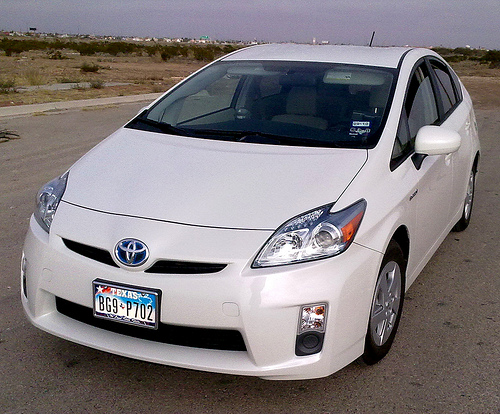If we are optimistic, take a longer view, and we employ realistic methods, we can contribute to making the world a better place. – Dalai Lama

The sales brochure only tells you the good things. It’s up to you to learn about the making of the batteries, and how many miles they travel before being installed. Short term, a green car, but what is the long term impact? Is it really making the world a better place?
What does that mean?
This quote is all about improving the world in general. To me, that is one of our primary functions as the dominant species on the planet. Yes, it’s nice to gather shiny objects. Yes it’s nice not to have to worry about our next meal or what the weather is like outside. But, to me, the big thing is to help others.
The quote starts by mentioning our attitude. Long time readers know that I consider our attitude to be amount our most important and valuable traits. With a good attitude, we can accomplish a great amount. With a lousy one, we hardly expect to get much done.
The quote then urges us to take a long term view and plan to use realistic methods for our actions. It doesn’t ask you to take a brief moment to beg Space Aliens to come to visit and put an end to war. It asks for a lifetime’s committment to taking small, realistic actions in pursuit of improving the condition of the world.
Why is making the world a better place important?
Well, you wouldn’t want to make it a worse place, would you? And, by definition, it cannot stay the same with so much changing every day. Therefore we must do what we can to make the world a better place. That would be the optimist’s approach, right?
The quote urges us to also take a longer view, to think about not only what you do to help now, but to make sure that we do not do things that will cause problems down the road (Some of the early British attempts to restore Greek ruins did more damage than multiple centuries of neglect and weather).
We are also encouraged to use realistic methods, which is especially important when planning. No magic wands, super ray guns, or anti-gravity devices until they are invented, right? Stick to what is real and what can be done today.
Where can I apply this in my life?
A few years ago, there was a news report that said that over the entire life-cycle of a car, the big, heavy, gas-guzzling Hummer was actually kinder to the environment than the super green Prius. When they took into account the transport of the parts from all over the world, the cost to build and dispose of the batteries, and how much of the vehicle could be reclaimed at the end of it’s useful life, the Hummer actually won.
I found it interesting, but not enough to verify all the details. The point is that there is often more to consider than what the short-term benefit might be. Yes the Prius uses less gas, however, the chemicals and the processing for it’s battery packs is a bit of a problem.
So, what are you to do? That’s a personal decision, as you will have to live with the consequences. I only point out that there is often more to the story than what shows up on the glossy sales pamphlet. I would urge you to investigate a little deeper, and look at the long term impact on the world.
The same goes for how we behave towards each other. Many of the hard feelings between the people of the world have started with an urge by one group to do something for short term gain, at the expense of decades, or even centuries of hardship for both groups of people. Not thinking long term, were they?
While our contributions, for good or ill, will likely be small, if we each do our part, the net result will slowly help to improve the world. One day at a time, one decision at a time, one person at a time. Without a long-term view, it might be easy to get discouraged by the ups and downs of a normal life, but that’s where the optimism comes in.
Making the world a better place is something we should give at least a passing thought to as we make our daily and long term plans and decisions. If we don’t put some effort into making things better, they aren’t too likely to get better on their own, right?
From: Twitter, From: Twitter, @DalaiLama
confirmed at : it’s from his own feed…
Photo by Paul Garland







Reblogged this on FILOSOFISK.